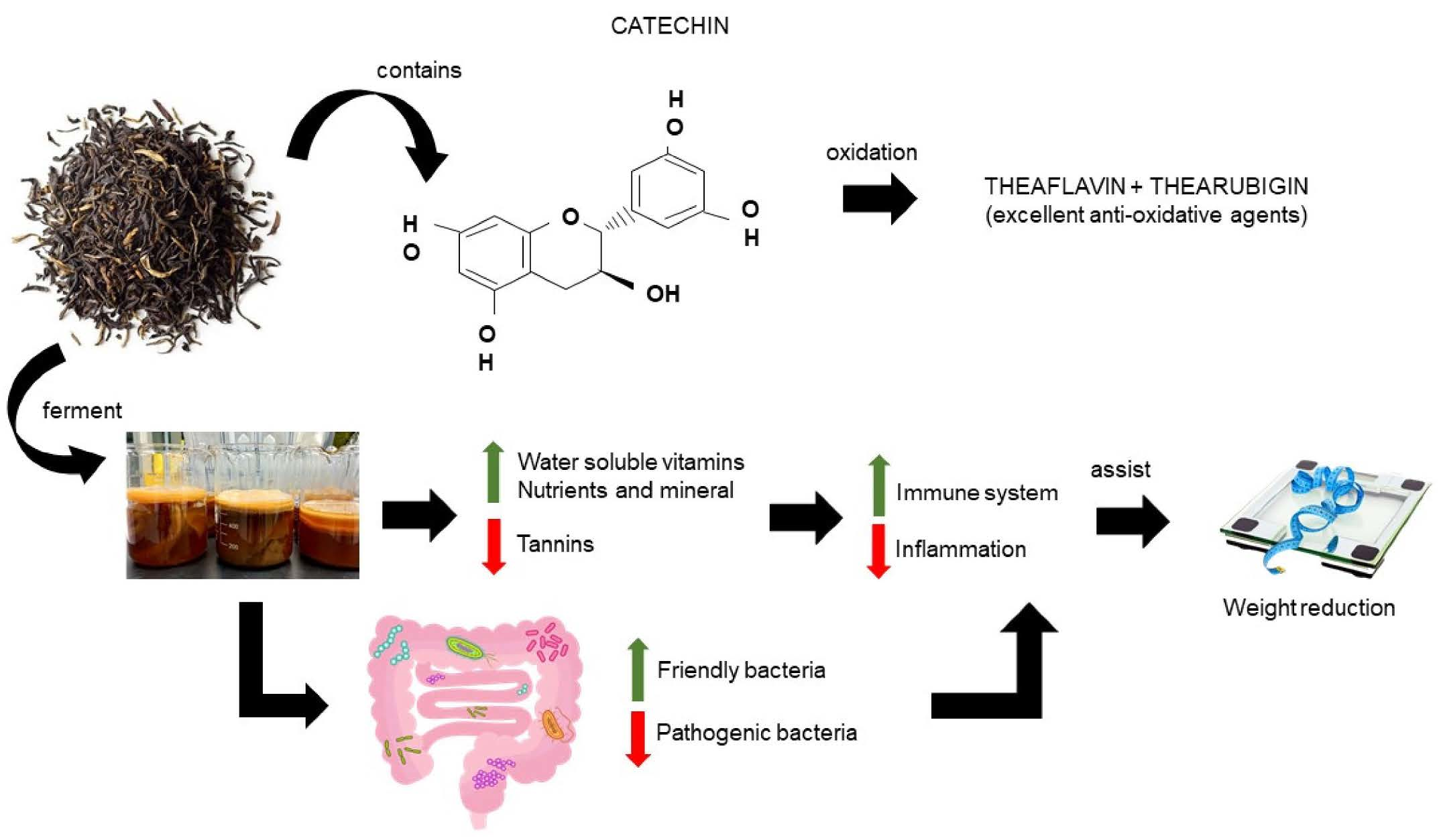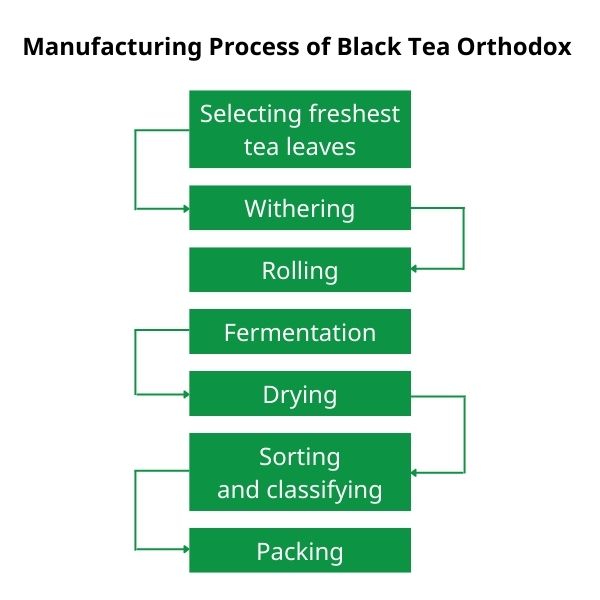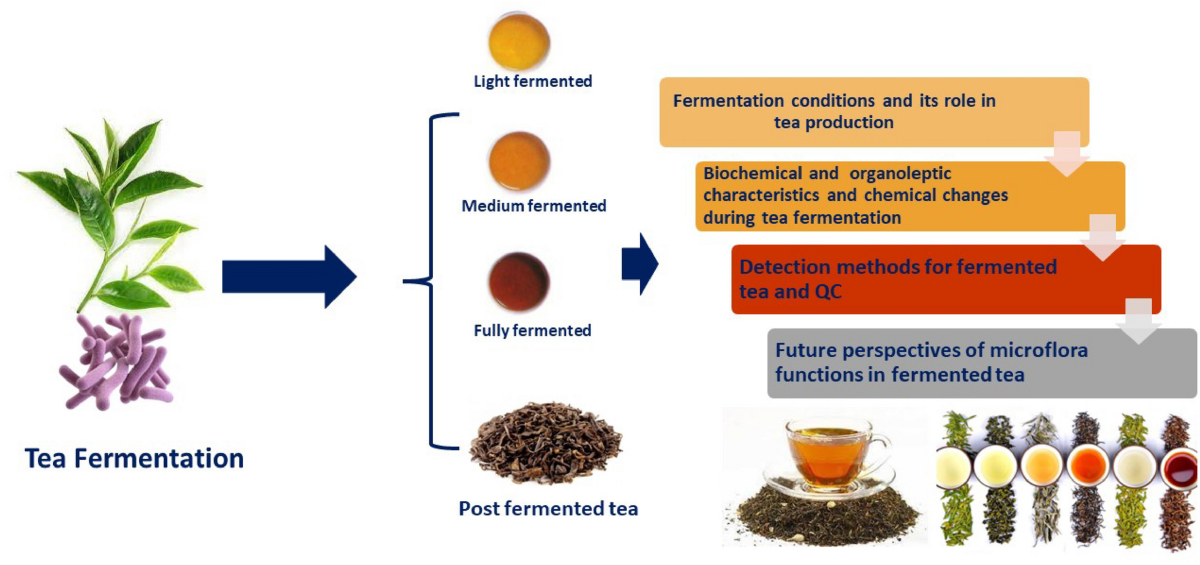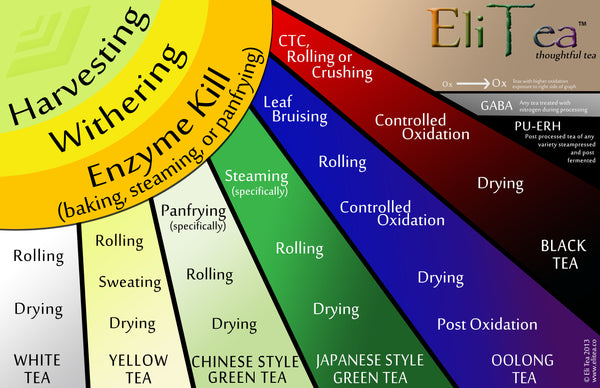Black Tea 101: Understanding the Fermentation Process
- Blog
- Black Tea 101: Understanding the Fermentation Process
green tea
Alright, let’s talk about this “black tea fermented” thing. Folks keep askin’ about it, so I figured I’d just lay it out simple-like, ya know?
What is this Fermentin’ All About?
So, you got these tea leaves, right? Fresh off the plant. They ain’t black tea yet, no sir. Fermentin’ is what makes ’em black. It’s like, uh, lettin’ the leaves sit around and do their thing, kinda like when you leave fruit out and it gets all ripe and soft.
But it ain’t just sittin’ around. It’s a whole process. First, they pick the leaves, that’s the “plucking.” Then they let ’em dry out a bit, that’s the “withering.” After that, they squish ’em and roll ’em up real good, breakin’ up all the little bits inside.

That’s when the magic happens. They spread the leaves out, maybe on trays or somethin’, and let the air get to ’em. It’s warm and wet, like a summer day after a rain. That’s the fermentin’ part. The leaves get dark, real dark, and that’s where the black tea color comes from. It also gives the tea that strong taste, ya know? The one that wakes you up in the mornin’.
Why is Fermentin’ So Important?
Well, without fermentin’, you just got green leaves. It’s the fermentin’ that turns ‘em into black tea. It changes the taste, the color, everything. It’s what makes black tea, black tea. Some folks say it makes the tea better for ya too, but I don’t know about all that. I just know it makes it taste good and strong.
They talk about “oxidation” and all them fancy words, but it just means the leaves are changin’ when they sit out in the air. Like when an apple turns brown after you take a bite. Same kinda thing, but with tea.
Different kinds of tea, they ferment for different times. Black tea, it ferments the longest. That’s why it’s so dark and strong. Oolong tea, it’s kinda in-between. And green tea, well, they don’t ferment that one much at all.

So, is Black Tea Fermented?
You bet your bottom dollar it is! That’s the whole point! It’s the fermentin’ that gives it its color, its taste, its oomph! Without it, you just got some green leaves, nothin’ special.
Fermentin’ Makes the Difference
Think about it like this. You got your regular ol’ grapes, and then you got wine. Wine is just fermented grapes, right? Same with tea. You got your leaves, and then you ferment ’em, and boom, you got black tea. It’s a whole different thing.
And it ain’t just any kind of fermentin’ either. They gotta keep things just right, the temperature, the wetness, all of it. Too hot, too cold, too dry, too wet, and the tea won’t turn out right. It’s like bakin’ a cake, gotta follow the recipe, ya know?

Some folks use big machines to do all this nowadays, but back in the day, they did it all by hand. Hard work, I tell ya. But that’s how they made the best tea, the kind that really sticks to your ribs.
The Long and Short of It
So, there you have it. Black tea is fermented. That’s what makes it black, and that’s what gives it that strong taste. It’s a whole process, from picking the leaves to drying ’em out, but the fermentin’ part is the most important. Without it, you just ain’t got black tea.
Now, go on and have yourself a nice cuppa. You earned it, listenin’ to me ramble on about tea. Just remember, all that good flavor and color, that’s the fermentin’ workin’ its magic.
And don’t let nobody tell you different. If it ain’t fermented, it ain’t black tea. That’s just the way it is.

© Copyright 2025 Qianwei Tea | Theme developed by sitemap